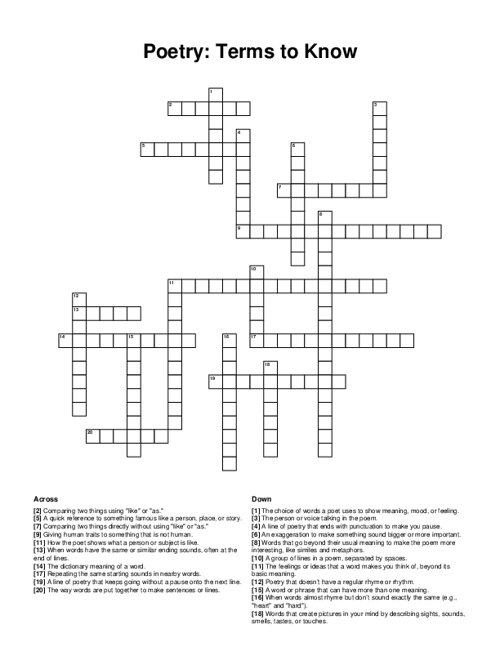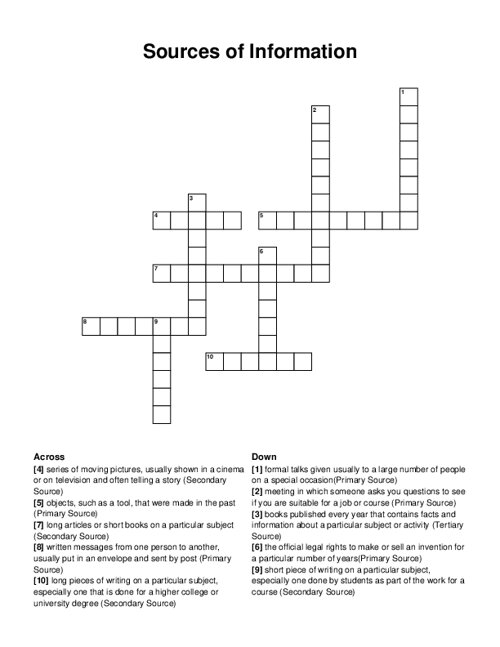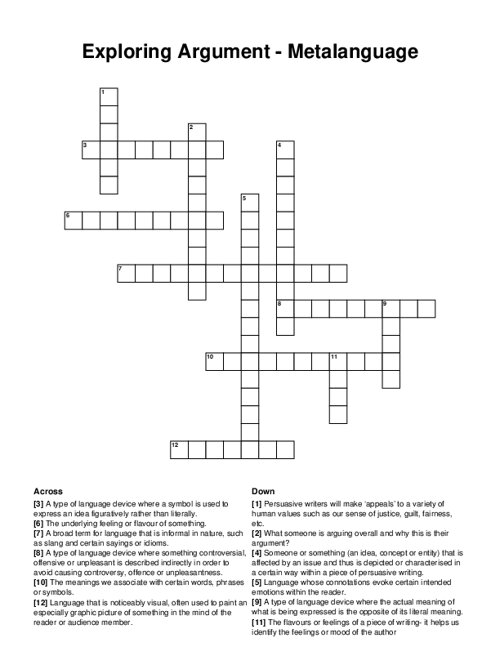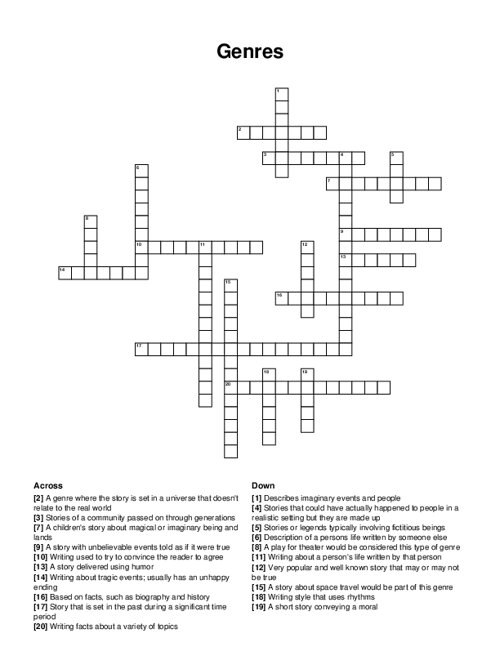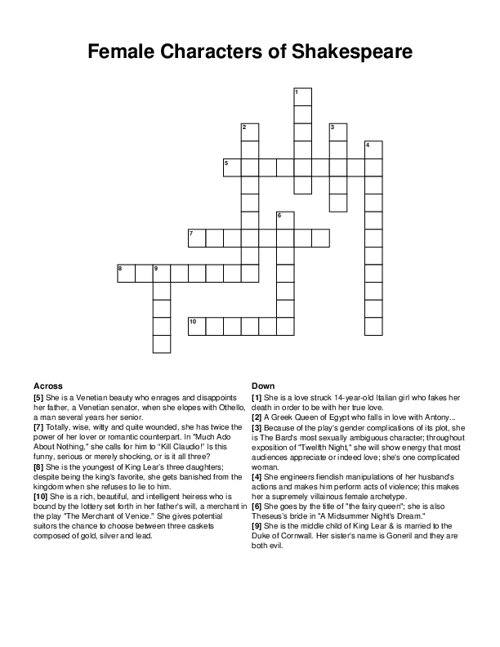Poetry: Terms to Know Crossword Puzzle
Download and print this Poetry: Terms to Know crossword puzzle.
Related puzzles:
Browse all Books / Literature Puzzles
QUESTIONS LIST:
- diction: the choice of words a poet uses to show meaning, mood, or feeling.
- ambiguity: a word or phrase that can have more than one meaning.
- end-stop: a line of poetry that ends with punctuation to make you pause.
- enjambment: a line of poetry that keeps going without a pause onto the next line.
- rhyme: when words have the same or similar ending sounds, often at the end of lines.
- slant rhyme: when words almost rhyme but don’t sound exactly the same (e.g, "heart" and "hard").
- stanza: a group of lines in a poem, separated by spaces.
- syntax: the way words are put together to make sentences or lines.
- free verse: poetry that doesn’t have a regular rhyme or rhythm.
- alliteration: repeating the same starting sounds in nearby words.
- imagery: words that create pictures in your mind by describing sights, sounds, smells, tastes, or touches.
- characterization: how the poet shows what a person or subject is like.
- speaker: the person or voice talking in the poem.
- figurative language: words that go beyond their usual meaning to make the poem more interesting, like similes and metaphors.
- denotation: the dictionary meaning of a word.
- connotation: the feelings or ideas that a word makes you think of, beyond its basic meaning.
- personification: giving human traits to something that is not human.
- hyperbole: an exaggeration to make something sound bigger or more important.
- simile: comparing two things using "like" or "as."
- metaphor: comparing two things directly without using "like" or "as."
- allusion: a quick reference to something famous like a person, place, or story.
